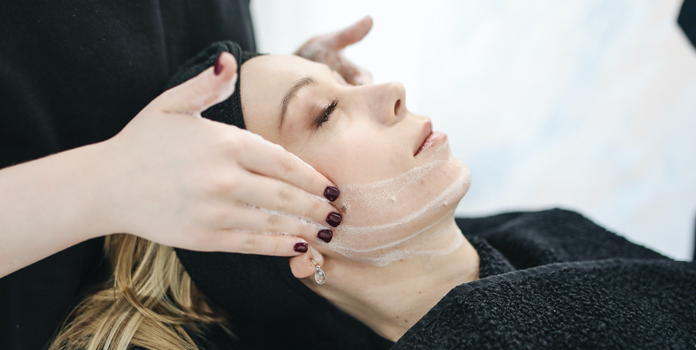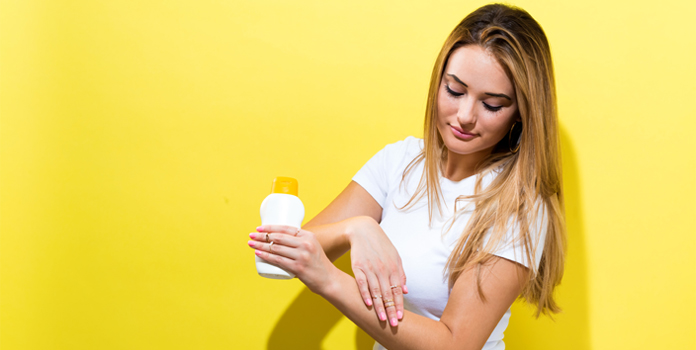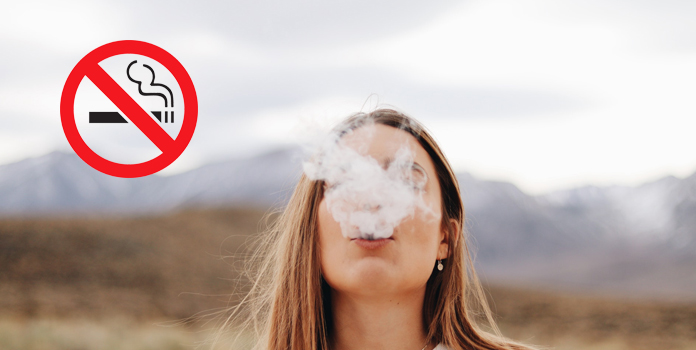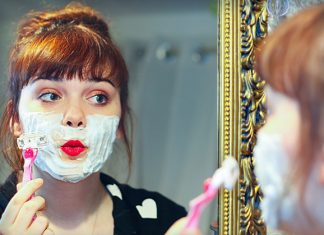Amidst the busy life schedule that we lead, taking time to invest in the skin can be challenging. Even though your skin could surpass the chilly winters, surviving through the scorching heat of summers can be tough.
The pollution and environmental hazards tend to increase in the summers, and your skin goes through a real trial period. Thus, it becomes very important to take good care of your skin in the summer season and to help retain its healthy glow. Read on to get an understanding of how to take care of your skin in summer.
During the summer months, the hot and humid temperatures lead to the secretion of the sebaceous glands, making the oily skin look oilier and the dry skin way too patchy. The Sun’s rays also lead to increased melanin production, ultimately resulting in skin darkening, tanning, pigmentation, blemishes, and acne.
So, it becomes very important to take proper care of your skin to keep such harm at bay. Check out some of the tips suggested by us to take care of your skin.
Related: Skincare: 9 Foods for Healthy Skin During the Winter
1. Never forget your Sunscreen

Whether you are staying at home or going out in the summer season, the application of Sunscreen is very important. The Sun gives out harmful rays like UVA and UVB, which leads to fine lines, tanning, and wrinkles on your skin.
Thus, getting a sunscreen that has an SPF content of 30 or more is important. The SPF or Sun Protection Factor below 30 is not capable enough to block the harmful rays of the Sun, while the one with SPF 30, or more, can block it up to 96%. However, make sure that your Sunscreen is non-comedogenic and does not consist of talcum residue and fragrance.
- Apply it just after prepping your skin in the morning.
- Apply it to all the exposed areas including, scalp, feet, under-eye areas, and ears.
- Reapply after every two hours.
2. Eat ample fruits and greens

What you eat is how your skin feels. The majority of the fruits and green vegetables are rich in antioxidants, creating a protective shield for the skin.
They also contain essential vitamins and minerals that provide nourishment to your skin. You can add nuts, seeds, and beans to your diet too.
3. Exfoliation is the key

Exfoliating your skin is very important to maintain healthy growth and to keep ageing at bay. The process of exfoliation, gently rubbing the skin’s surface, helps remove the dead skin and promote the growth of the new skin cells.
Physical and chemical exfoliators consist of antioxidants that cleanse the skin thoroughly and make it look much younger.
4. Change your moisturizer

The moisturizers you use in the winters, and those you use in the summers must not be the same. Winters are all about dry and flaky skin, and one needs to pick up a moisturizer that is thick in consistency and will not just evaporate.
While on the other hand, summers make the skin oily and patchy, which calls for a moisturizer with an emollient formula, that is quite lightweight and not sticky. Or, there are times when you need to swap both the moisturizer types in the same season.
So, considering at least two such moisturizers in your vanity is important to meet your skin’s needs.
5. Deal with stress

If you go through too much stress and depression, your skin might never get the radiance and healthy glow.
Stress can make your skin too sensitive and cause inflammation because the production of cortisol hormone increases in your body, which further triggers conditions like acne and skin pigmentation.
6. Do not smoke

When you smoke, the blood flow to your skin decreases, making the blood vessels narrower, making the skin look pale. The skin also gets depleted of oxygen, thus damaging the collagen and elastin. Due to this, the skin starts losing its elasticity and wrinkles become visible.
7. Limit bath time

If you spend a long time in the showers or enjoy the hot water bath for hours, then you’re probably doing it wrong. The prolonged contact of hot water might drain out the oils from your skin and thus makes your skin dry. The dryness could be so severe that your skin might start to peel off.
8. Always wear covered clothing

Though it is always better not to go out in the Sun, wear fully covered clothing if needed. It is recommended to cover the exposed skin with soft linen clothing, which would not result in skin rashes before you go out. Even if you sweat, wearing full sleeves, shirts, ankle-high pants, and wide-brimmed hats are very important to avoid direct contact with harmful rays of the Sun.
To protect the eyes, wear UV-ray protected sunglasses only. If you are prone to sun allergies, we suggest wearing laundry UV additives under clothes as that has been specifically designed to block the UV rays from the Sun.
Take away
Summers do not last a lifetime, but the dark skin, tan lines, wrinkles, patches, and pigmentation caused, might do if you do not take care of your skin. Do not let such skin impurities stick to you all year-round. Follow the above tips on how to take care of your skin in the summer suggested by us, and keep the youthful beauty of your skin locked!
Disclaimer:
All the tips mentioned in this article are suggested for informational and educational purposes. Kindly see a dermatologist if you are having skin problems and if you need any relevant health advice. Do not consider this as medical or health advice.
4 sources
- Get radiant hair, skin and nails naturally
https://www.mayoclinichealthsystem.org/hometown-health/speaking-of-health/get-radiant-hair-skin-and-nails-naturally - Skin care tips for healthy skin
https://www.mayoclinic.org/healthy-lifestyle/adult-health/in-depth/skin-care/art-20048237 - Summer Skin Care
https://www.thehealthy.com/beauty/face-body-care/summer-skin-care/ - Soften Smooth Skin With New Skin Renewal Procedure
https://www.mayoclinichealthsystem.org/hometown-health/speaking-of-health/soften-smooth-skin-with-new-skin-renewal-procedure






